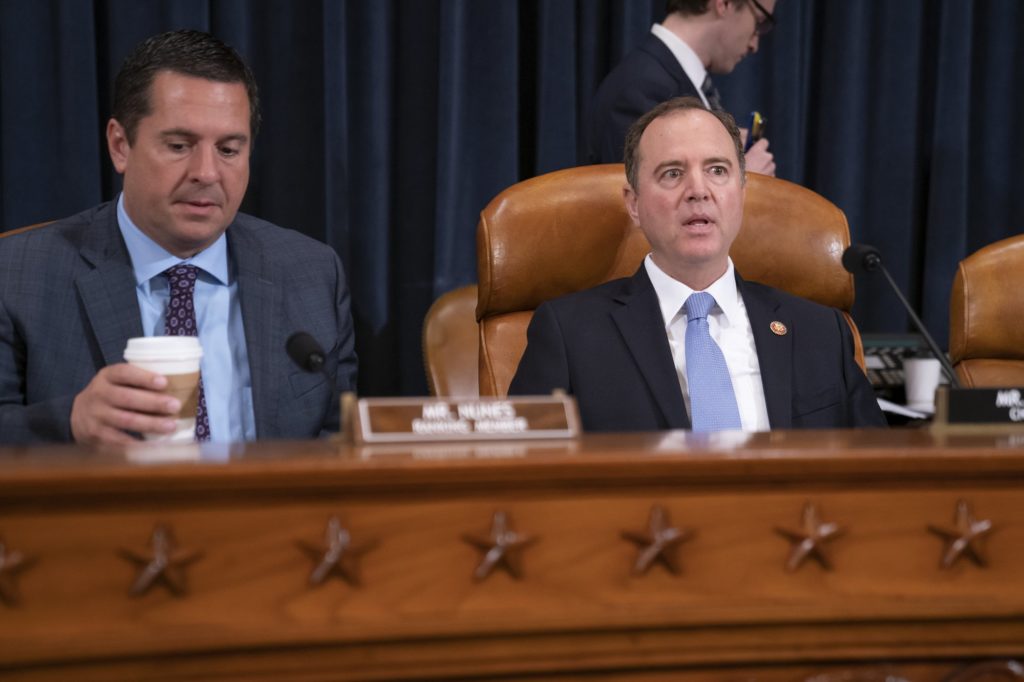Lawmakers and experts said Thursday that videos altered with artificial intelligence software pose a threat to national security and the 2020 U.S. election.
The technology uses facial mapping and artificial intelligence to produce videos — known as “deep fakes” — that appear genuine, and they “enable malicious actors to foment chaos, division or crisis,” said Rep. Adam Schiff, chairman of the House Intelligence Committee.
The videos “have the capacity to disrupt entire campaigns, including that for the presidency,” said Schiff, D-Calif.
The hearing came weeks after the release of an altered video of House Speaker Nancy Pelosi, D-Calif., that was widely shared on social media and was slowed down to make it appear that she was slurring her words.
Schiff said the video, which was released after Pelosi questioned President Donald Trump’s fitness for office , “demonstrates the scale of the challenge we face.”
Clint Watts, a research fellow with the Foreign Policy Research Institute, said tech companies should take action to counter false videos. He also suggested the U.S. could use sanctions and cyberattacks against producers of such content.
The committee’s top Republican, California Rep. Devin Nunes, raised concerns about granting too much authority to tech giants such as Facebook and Twitter to make judgment calls about content.
Nunes claimed that current filters have a pro-liberal bias. “Most of the time it’s conservatives who get banned,” he said. “It’s all in who’s building the filter, right?”
U.S. intelligence officials determined Russia carried out a sweeping political disinformation campaign on U.S. social media to influence the 2016 election.
(AP)












One Response
The solution is pretty obvious. Require all altered videos to state at the beginning and at the end that the video was altered, how it was altered and the name of the person or persons who altered it. There would have to be a severe penalty for not doing so.